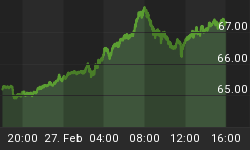Oil Market Summary for 07/12/2010 to 07/16/2010
An unexpectedly sharp drop in a key consumer confidence index sent stocks plummeting on Friday and drove down prices for crude oil futures so that the benchmark contract finished the week virtually unchanged from last Friday.
The near-month contract for West Texas Intermediate settled at $76.01 a barrel on Friday, compared with $76.09 a week ago.
The University of Michigan/Reuters consumer index dropped to 66.5 in July from 76 in June, a much sharper decline than was expected. The bad news, which cast renewed doubt on the strength of the economic recovery, sent the Dow Jones Industrial Average tumbling 261 points to close the week perilously close to the 10,000 mark once again at 10,098.
Persistent doubts about the economy have kept oil prices trading in a narrow range for months. News from the Federal Reserve on Thursday that manufacturing growth in several regions had slowed down in the latest reporting period dampened oil prices.
The index for the Philadelphia region, for instance, slipped to 5.1 in July, down from 8 in June, compared with 10 forecast by economists. The positive index indicated that the sector is still growing, but less robustly than hoped. The Philadelphia index was 21.4 in May.
Oil prices rose earlier in the week, tracking the stock market's gain on positive earnings news from Alcoa, kicking off the quarterly earnings report season. Oil futures settled above $77 a barrel on Tuesday.
But the market turned bearish, despite a bigger-than-expected decline in oil inventories on the week, and a weakening dollar in foreign exchange markets, which usually translates into higher oil prices. Stockpiles for gasoline and oil distillates like heating oil and diesel rose in a sign of continued weak demand.
The Fed on Wednesday released a summary of its meeting last month indicating concern about the economy growing more sluggish and this outweighed the positive news.
Some traders took heart in the narrowing discount between the August and September contracts, indicating that short-term supplies might be tightening. But analysts said it would take some significant news to break oil prices out of the $70 to $80 trading range of the past few months.















